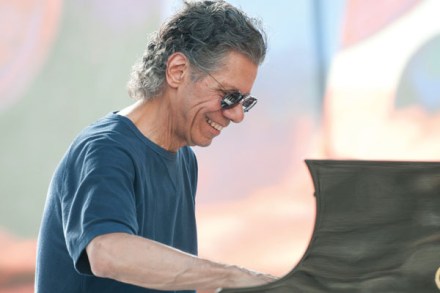Time trials
It’s amazing what can be squeezed into an hour of The Hour (Wednesday, BBC2): smutty photos, gang violence, bent coppers, illegal gambling, fascism, racism, a political cover-up, a media exposé, leaked documents, seduction, abuse, neglect, the corrupting temptations of celebrity, the corrupting temptations of complicated dessert recipes, a dog in space, the threat to the nation of nuclear war, the threat to the BBC of commercial television and the threat to an English bluestocking of a sexy, bare-legged French girl with a carving knife, a wedding ring and a gamine haircut. The poor old kitchen sink, left out like Cinderella, must have had a dull time sitting at home by

















